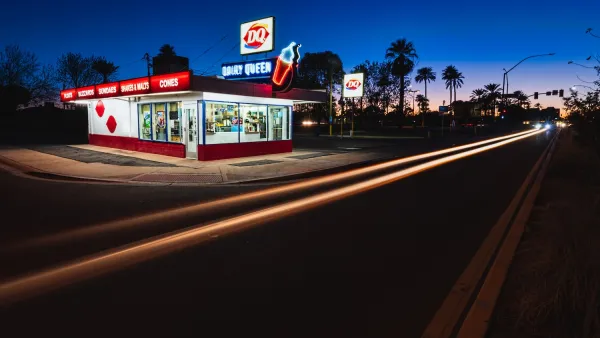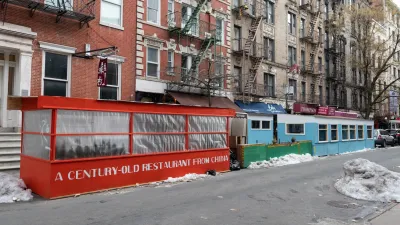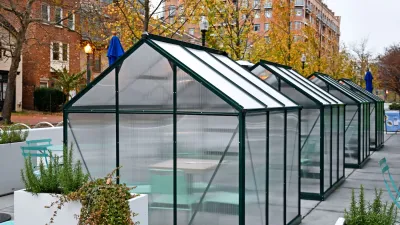A California bill approved in 2018 legalized restaurants to locate in homes, setting the foundation for a new restaurant economy just when communities needed it most.

Farley Elliott reports on the effects of AB 626, approved in 2018 to amend the California Retail Food Code to allow microenterprise home kitchens.
The text of AB 626, authored by Assemblymember Eduardo Garcia (D-Coachella) reads as follows.
This bill would, among other things, include a microenterprise home kitchen operation within the definition of a food facility, and would define a microenterprise home kitchen operation to mean a food facility that is operated by a resident in a private home where food is stored, handled, and prepared for, and may be served to, consumers, and that meets specified requirements, including, among others, that the operation has no more than one full-time equivalent food employee and has no more than $50,000 in verifiable gross annual sales.
Here's how Farley explains the bill:
The newly implemented regulation allows anyone to run a licensed restaurant out of their home kitchen and dining room. No commercial space, no food truck, no ghost kitchen, and no staff is needed — just pull some local permits to get certified by the Riverside County public health office.
According to Farley, AB 626 is having an effect in the Inland Empire, where businesses and residents are hustling to make ends meet, and potentially spurring a dining revolution precisely when it's needed most.
Between stay-at-home mandates, high unemployment, and the still-raging coronavirus pandemic, the entrepreneurial opportunities presented by AB-626 could mean tens of thousands of dollars in the hands of local chefs who feed their communities the food they most want to eat.
Farley explores the city of Riverside County for examples like Barra de Pan in Corona, run by Lucy SIlva and family. The article also includes details about the work of developers in delivering the tech platforms to enable the dining revolution.
FULL STORY: Riverside’s Newly Legal Home Restaurants Look to Revolutionize California’s Food Scene

Planetizen Federal Action Tracker
A weekly monitor of how Trump’s orders and actions are impacting planners and planning in America.

Congressman Proposes Bill to Rename DC Metro “Trump Train”
The Make Autorail Great Again Act would withhold federal funding to the system until the Washington Metropolitan Area Transit Authority (WMATA), rebrands as the Washington Metropolitan Authority for Greater Access (WMAGA).

The Simple Legislative Tool Transforming Vacant Downtowns
In California, Michigan and Georgia, an easy win is bringing dollars — and delight — back to city centers.

The States Losing Rural Delivery Rooms at an Alarming Pace
In some states, as few as 9% of rural hospitals still deliver babies. As a result, rising pre-term births, no adequate pre-term care and "harrowing" close calls are a growing reality.

The Small South Asian Republic Going all in on EVs
Thanks to one simple policy change less than five years ago, 65% of new cars in this Himalayan country are now electric.

DC Backpedals on Bike Lane Protection, Swaps Barriers for Paint
Citing aesthetic concerns, the city is removing the concrete barriers and flexposts that once separated Arizona Avenue cyclists from motor vehicles.
Urban Design for Planners 1: Software Tools
This six-course series explores essential urban design concepts using open source software and equips planners with the tools they need to participate fully in the urban design process.
Planning for Universal Design
Learn the tools for implementing Universal Design in planning regulations.
Smith Gee Studio
City of Charlotte
City of Camden Redevelopment Agency
City of Astoria
Transportation Research & Education Center (TREC) at Portland State University
US High Speed Rail Association
City of Camden Redevelopment Agency
Municipality of Princeton (NJ)





























